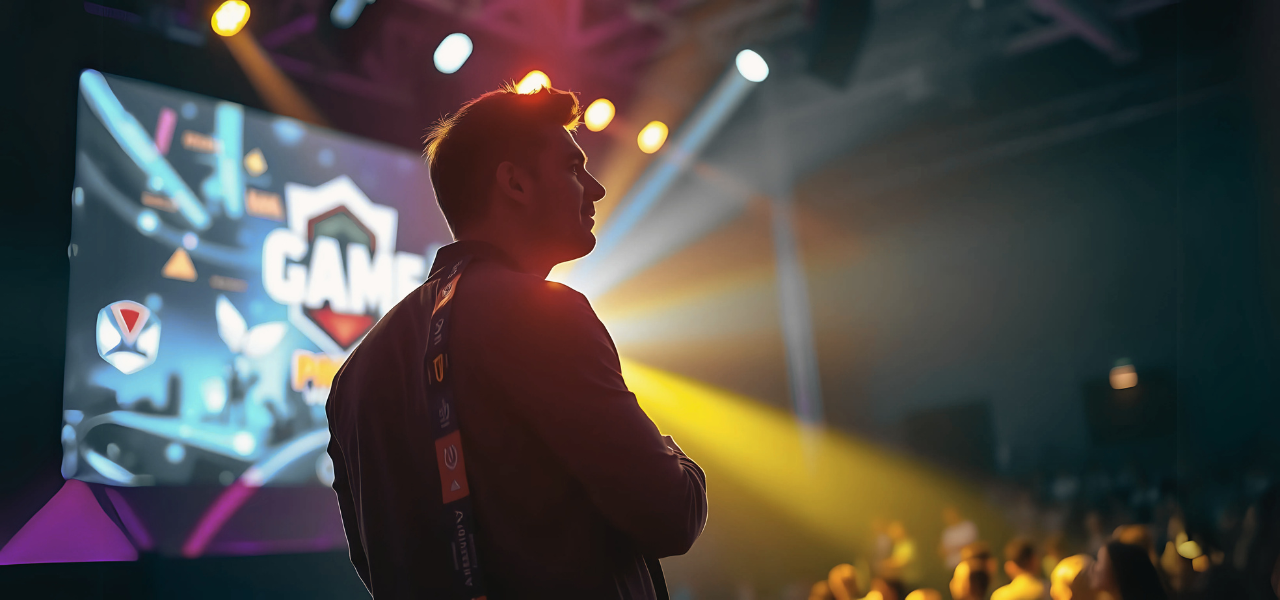Game Festivals for Everyone: When Inclusion Becomes the Standard
For millions of people with visual impairments, participating in the gaming community can come with numerous barriers—not just gameplay limitations, but also difficulties attending events and conferences.
Traditional gaming events often lack basic accessibility features: no audio descriptions, apps that aren’t screen reader-compatible, venues without trained assistants or navigation aids suited for the visually impaired. For someone with vision loss, attending such an event can feel more like a test of endurance than a celebration of community.
However, new initiatives are emerging that don’t merely compensate for these shortcomings—they are setting a new benchmark for inclusivity. This article explores global conferences that show how gaming events can and should be designed with the needs of all participants in mind.

Access-Ability Summer Showcase
One of the most compelling examples is the Access-Ability Summer Showcase—an online event held annually by accessibility consultant and inclusive gaming advocate Laura Kate Dale. The showcase has become a platform for highlighting games designed with players of varying disabilities in mind, including blind and visually impaired gamers.
The broadcasts are fully equipped with audio commentary, enabling blind viewers to follow along with visual content. Professional sign language interpretation, high-contrast text, and clear navigational structures are standard. The event is streamed on Twitch and YouTube, ensuring wide accessibility.
The real value of the showcase lies not just in showcasing specific games, but in normalizing accessibility as a core development priority. It’s not a matter of “extra features for a minority,” but a necessary evolution dictated by ethics and the expectations of a modern digital world.
Gaming for Inclusion
Gaming for Inclusion is a project launched by Microsoft in partnership with Special Olympics, centered on bringing together people with diverse physical, cognitive, and sensory needs. The initiative goes beyond competition—it’s about building an inclusive educational and social environment.
Participants compete in popular esports titles like Rocket League and Minecraft, but also learn streaming skills, practice game commentary, and engage in conversations with public figures. It’s a large-scale platform for personal growth and visibility where every voice matters.
Support is comprehensive: from adaptive controllers and audio/tactile feedback to mentoring and technical assistance. Participants gain access not just to games but to a full ecosystem of empowerment.
According to digital inclusion experts, Gaming for Inclusion is a strong model for how businesses and civil society can jointly create sustainable participation pathways for people with disabilities in mainstream culture and sports.
Games Accessibility Conference (GAconf)
The Games Accessibility Conference (GAconf), organized by the IGDA Game Accessibility SIG initiative, is held both in-person and online, with sessions in North America and Europe. GAconf brings together developers, UX designers, researchers, players with disabilities, and advocates to exchange insights and best practices for integrating accessibility into game design.
Live streams include subtitles, sign language interpretation, and accessibility supports like written versions of talks and compatibility with assistive technologies. Participants can ask questions both live and in advance, making the experience adaptable for individuals with various needs.
Importantly, the focus extends beyond technical solutions—like adaptive controls or readable UIs—to cultural sensitivity, accurate representation of disabled gamers, and inclusive development processes involving the community itself.
Building Truly Accessible Events
Audio guides, accessible digital interfaces, voice navigation, and tactile maps are becoming increasingly common. Some organizers go further by implementing screen-reader-compatible apps and assigning trained volunteers to support participants with disabilities.
The shift from symbolic inclusion to real accessibility demands organizational, technical, and ethical effort. Yet, as the Access-Ability Showcase and Gaming for Inclusion have proven, these efforts are both possible and essential. Every step toward inclusion is a step toward a future where everyone plays.
From festivals to games—discover the top blind-friendly games in our blog.
